7 Telltale Signs of Boredom in Cats: Owners Must Pay Attention!
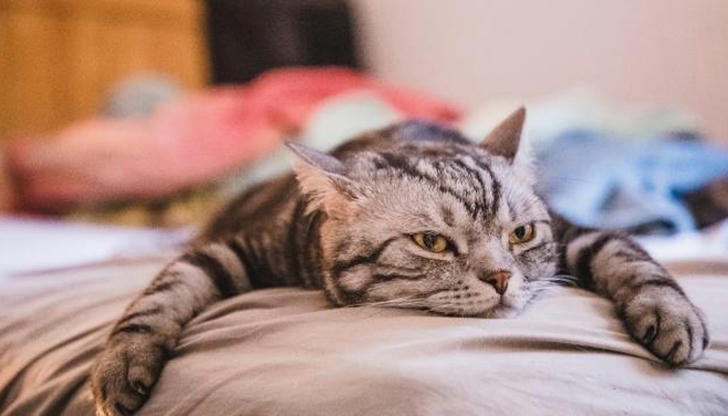
Whether it's good or bad, cats are notorious for their aloofness and seeming indifference towards humans. Despite this solitary behavior, cats (just like dogs) need different types of stimulation and interaction during the day to stay busy and active. In particular, they require activities that promote typical feline behaviors, such as hunting, exploring, and climbing.
Without this stimulation and interaction, indoor cats can become bored. Prolonged boredom can lead to serious consequences, from destructive behavior to depression. Therefore, pet parents must be able to recognize the signs of cat boredom and be aware of the potential consequences it may cause, taking appropriate measures to alleviate their cat's boredom.
Come quickly and see if your cat exhibits the following behaviors; if so, take action promptly.
1. Destructive Behavior
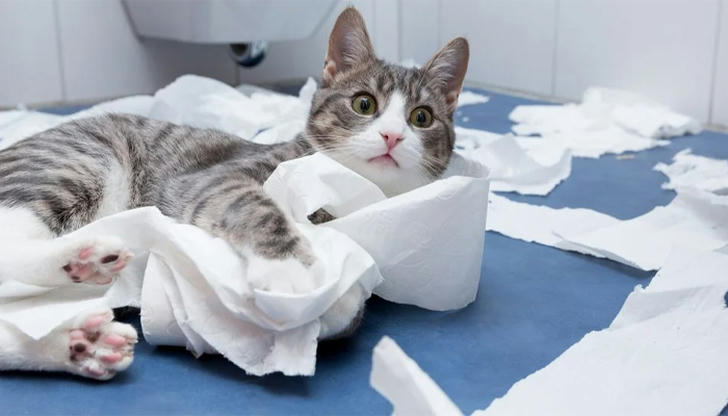
When cats get bored, they might seek out ways to burn off energy and alleviate their boredom. In doing so, they may opt to chew or scratch furniture, curtains, wires, and other items. This behavior not only causes damage to the owner's belongings but also poses risks of injury to the cat, such as bumps and electric shocks. So, it's important to keep an eye out for these signs and find ways to keep your cat entertained!
Provide appropriate toys and activities to allow cats to expend and consume excess energy. Purchase some cat toys suitable for chewing and scratching, and engage in interactive games with your cat regularly. Additionally, offer a safe and stimulating environment for your cat, such as a cat tree, climbing frame, and hiding caves.
2. Excessive Grooming and Self-Licking

Cats are incredibly clean animals and spend a lot of time grooming themselves. However, when cats are bored, they may engage in excessive grooming, leading to skin inflammation and bald patches.
How to alleviate this? Create a diverse environment for your cat, providing toys and games that spark their interest and stimulation to reduce their excessive grooming behavior. Regularly interact with your cat, playing and exercising with them, to divert their attention and satisfy their curiosity.
3. Loss of Appetite and Grass Eating
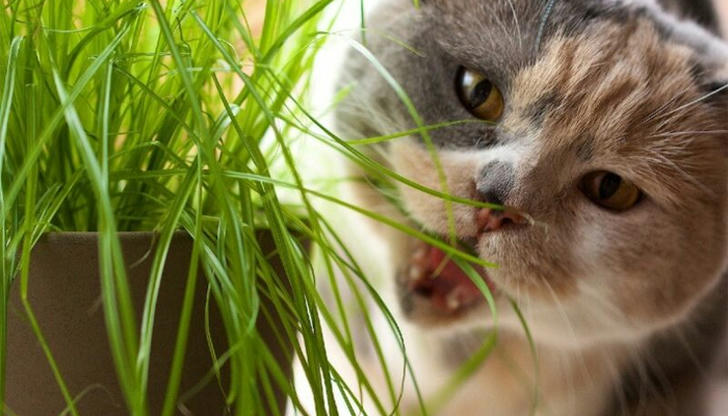
When cats feel bored, they might lose interest in food or even refuse to eat. Additionally, some cats may eat grass to alleviate the anxiety and discomfort caused by boredom.
Ensure to provide your cat with high-quality food and control their diet appropriately to avoid over-hunger or overeating. Moreover, prepare some special cat grass or grass balls to satisfy their interest in plants and their appetite.
4. Excessive Cuddling and Attention-Seeking
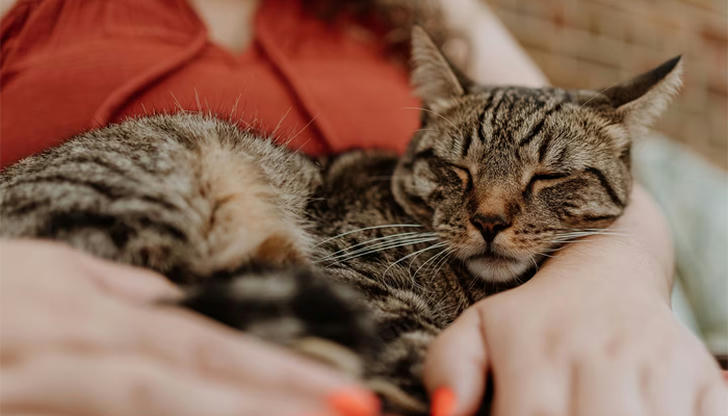
When cats are feeling bored, they often resort to excessive cuddling and demanding attention from their owners to add some excitement and interaction to their day.
To combat boredom, set aside dedicated time each day to engage with your cat in various activities and play sessions. Incorporate stimulating toys and games into your routine to keep your cat entertained and mentally engaged. Additionally, provide plenty of affection and attention during these interactions to strengthen your bond with your furry friend.
5. Chasing Shadows and Tails
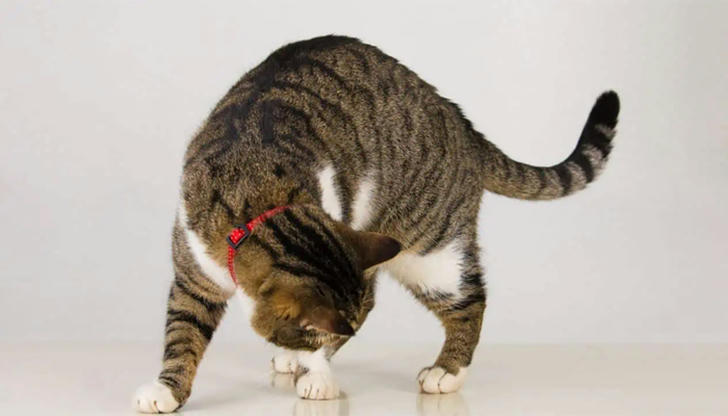
Cats are renowned for their fascination with shadows and anything that moves, but when they're feeling bored, this curiosity can escalate into obsessive chasing of shadows and even their own tails.
To address this behavior, it's essential to provide a variety of stimulating toys and activities. Opt for toys that mimic the movement of prey, such as laser pointers or feather wands. Interactive toys that encourage your cat to pounce, stalk, and chase can help satisfy their natural hunting instincts while providing mental and physical stimulation.
Additionally, consider setting up a play area with different levels and hiding spots to mimic an outdoor environment. Rotate toys regularly to keep things interesting and engage your cat in play sessions daily to prevent boredom. Remember to always supervise playtime to ensure your cat's safety and well-being.
6. Prolonged Sleep and Negative Mood
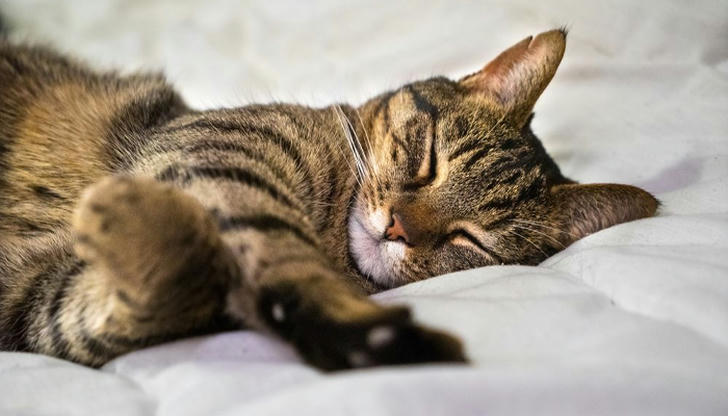
When cats are feeling bored, they may become lethargic, spending most of their day sleeping and displaying signs of negative mood.
How to address this issue? Create an enriching environment with toys, scratching posts, and climbing structures to encourage exploration and activity. Rotate toys regularly to keep them engaging, and consider introducing puzzle feeders or treat-dispensing toys to provide mental stimulation during meal times.
Additionally, ensure your cat has enough rest time and a quiet space to meet their regular sleep needs.
7. Loneliness and Silence
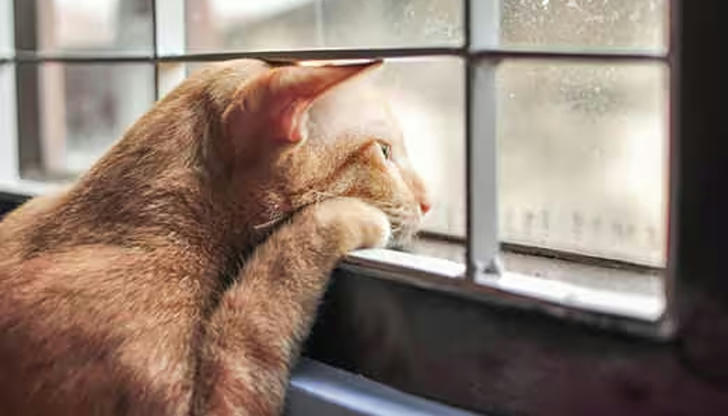
When cats feel bored, they may even become quiet and withdrawn, distancing themselves from their owners and other animal companions.
Consider adopting a companion cat or participating in regular activities that involve interaction with other cats. Additionally, engage in intimate interactions with your cat regularly, such as gentle petting and speaking to them softly, to strengthen the emotional bond between you both.
